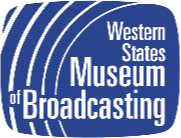America's history through the lens of 20th century broadcast media

Copyright 2020 Greenstone Media Consulting, LLC
Library - Public Broadcasting
Noncommercial radio in the U.S. dates back to the founding of the radio industry when all stations operated without advertising. During radio's formative years, advertising grew and many stations were founded as for profit operations. However, many of radio's original noncommercial, educational (NCE)stations -- started by colleges and high schools -- continued their service until the Depression and litigation by commercial interests who wanted their frequencies forced most of these NCE stations off the air.
NCE broadcasting had become a slight factor in American radio and, when television was in the offing after World War 2, educational interests didn't want to have NCE television suffer the same fate. A major effort, spearheaded by the first female Federal Communications Commission member, Frieda B. Hennock, ultimately resulted in the "reservation" of TV channels (and slightly later FM radio frequencies) solely for NCE uses.
However, what we now know as Public Broadcasting didn't really start to develop until President Lyndon Johnson made establishment of public radio and public television a part of his Great Society program with the passage of the Public Broadcasting Act of 1967.
How should this new "vision" for radio and television be developed and operated and what goals should it pursue. A collection of writing on those topics can be found on these two links.
Library of Thought and Analysis about Public Media -- Volume 1
Library of Thought and Analysis about Public Media -- Volume 2
NCE broadcasting had become a slight factor in American radio and, when television was in the offing after World War 2, educational interests didn't want to have NCE television suffer the same fate. A major effort, spearheaded by the first female Federal Communications Commission member, Frieda B. Hennock, ultimately resulted in the "reservation" of TV channels (and slightly later FM radio frequencies) solely for NCE uses.
However, what we now know as Public Broadcasting didn't really start to develop until President Lyndon Johnson made establishment of public radio and public television a part of his Great Society program with the passage of the Public Broadcasting Act of 1967.
How should this new "vision" for radio and television be developed and operated and what goals should it pursue. A collection of writing on those topics can be found on these two links.
Library of Thought and Analysis about Public Media -- Volume 1
Library of Thought and Analysis about Public Media -- Volume 2
